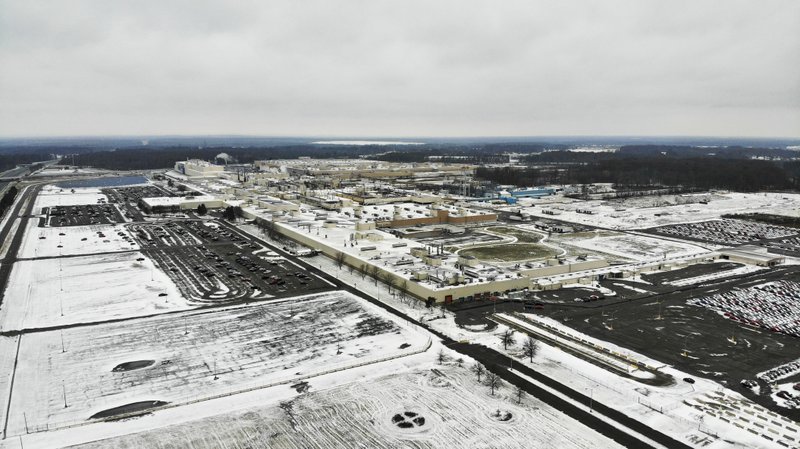TOLEDO, Ohio -- General Motors is selling an assembly plant it shut down earlier this year in Ohio to a newly formed company that said Thursday that it intends to begin making electric trucks by late 2020.
The company called Lordstown Motors Corp. plans to hire 400 production workers at the outset, but said it still needs more investors before manufacturing can begin.
GM had employed 4,500 people at the factory near Youngstown just two years ago before it began cutting production and eventually in March ended more than 50 years of car manufacturing there, part of a major restructuring plan.
The closing of the once-bustling factory that last made the Chevrolet Cruz came into the political spotlight last November after President Donald Trump criticized the plan and pushed GM executives to either reopen or sell the plant, at one point threatening to cut off all federal subsidies to GM.
Trump took a particular interest in the Lordstown plant, which sits in an area of Ohio that will be important to him in the 2020 election and is where he promised supporters at a rally that manufacturing jobs are returning to the Midwest.
Terms of the sale and the investors who are behind the deal weren't disclosed by the privately held Lordstown Motors. Chief Executive Officer Steve Burns said Thursday that GM is not among the investors.
Acquiring the plant will allow the company formed just months ago to begin seeking more money so it can begin production of a new electric pickup that will be marketed to commercial customers such as utility companies and municipal governments.
So far, the focus has been on designing the truck, building its management team and buying the plant, he said. "We've raised money to get this far, but the large fundraising starts now," Burns said.
The company, he said, had a unique opportunity to buy an auto plant still equipped with welding, stamping and painting operations needed to produce vehicles.
"Normally when these plants shut down, by the time someone buys it, it has been gutted," he said. "To build from scratch would be in the billions."
While production will be limited in the beginning, the plan is to create a hub for electric-vehicle manufacturing. "We didn't buy this plant to not fill it up and get to full production," he said.
Burns was a founder of Cincinnati-based Workhorse Group, a fledgling electric-truck maker that will hold a minority stake in a new venture and provide it with technology needed for the new pickups.
Speculation on the plant's future had centered on Workhorse since Trump happily tweeted in May that the company was in talks to buy the huge facility. But there also have been plenty of questions about its financial footing.
Burns said he knows there will be skepticism until Lordstown Motors starts producing an electric pickup that customers love.
The trucks, he said, will use hub motors in each wheel, eliminating the need for driveshafts and other parts.
"We're essentially reinventing electric vehicles," Burns said. "The wheel is the motor. The only moving parts on this truck are the wheels. It's a super, simple vehicle."
The deal comes as GM itself is trying to move toward the future with an eye on autonomous and electric vehicles, with plans announced earlier this year to build its own electric pickup at a Detroit plant. GM also is building an electric-vehicle battery cell factory in the Lordstown area that will be run by a joint venture.
Burns thinks his company can compete for a share of the electric-vehicle market by being quicker to adjust to new technology and by targeting commercial, fleet customers who want more than what conventional trucks can supply.
The United Automobile Workers union opposed the Lordstown plant sale because of the risk involved. In addition to being wary of tying its fortunes to a cash-strapped startup, future demand for electric vehicles is uncertain. Several electric-vehicle upstarts have failed, including Fisker Automotive Inc., which was acquired by a Chinese auto-parts conglomerate after bankruptcy. Even Tesla Inc. struggles to make consistent profit.
Burns said he's hired a team of veterans from GM, Ford Motor Co. and Fisker's successor company, Karma Automotive LLC. His chief production officer, Rick Schmidt, was a manufacturing director at Tesla for 3½ years.
"We've got a solid team and I'm confident in our fundraising efforts," he said.
Information for this article was contributed by John Seewer of The Associated Press and by David Welch and Kevin Miller of Bloomberg News.
Business on 11/08/2019
